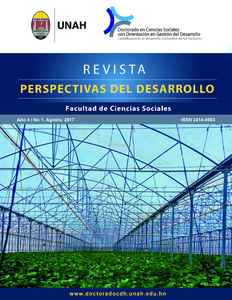The knowledge management for sustainable human development. Where does suprior education go? Today
DOI:
https://doi.org/10.5377/rpdd.v4i1.9383Abstract
Sustainable human development is a theory of development that has been built since the middle of the last century, due to the need of the world to explain and seek alternatives to the deep levels of poverty produced by the conditions of inequality and exclusion of large populations of the globe . The great world conflicts caused the need for the installation of a system that would ensure that the world was not going to be involved again in such conflicts, so humanity should initiate a process of change in its structures and aim to give it participation to all development actors, raising the theory of First People with its importance of citizen participation. At the same time the generation of knowledge has had a great momentum trying to face the new challenges of humanity. In confronting the different problems that human beings have encountered in their future, they have used techniques and sciences to discover a solution to them. In the production of knowledge and based on the complexity of the problem, three schemes of relationship between the sciences were conceptualized: Disciplinarity, Interdisciplinarity and Transdisciplinarity, conceptualizing Morin the complex thought by recognizing the complexity of the human being, of the living, of the earth , of the cosmos, giving way to the construction of a new anthropocosmological culture. Faced with this horizon, there are two problematic fields that demand attention: the modes of production of knowledge, in what refers to scientific and academic knowledge, and the link between knowledge and strategic relationship for the establishment of policies that respond to the needs of reality through higher education.In the challenges of the university of the 21st century it is proposed that both from the social, political, cultural and economic point of view and from the perspective of the growing complexity of today's world, the mission of knowledge is key in terms of transformation and in terms of citizenship and social responsibility, which must be strengthened to contribute to the creation of sustainable human development, a fundamental task of Higher Education. There have been many jobs that have been on higher education produced and has been UNESCO with its Regional and World Conferences that have agreed which they are the challenges, challenges and trends as well as the Plan for Action that the countries of the world must face and promote so that higher education can achieve a lifelong education by promoting four general basic competences (Delors, 1996) as way to achieve a better world. UNESCO concludes that it is a priority to promote interaction and links between the various scientific disciplines and to promote training and research services that are oriented to the cultivation of recognition of the integration of the different sciences. As historical background and constructors of the current UNAH, writings by Tünnerman, Rama and others on the movements of University reform that occurred from the middle of the previous century in Latin America, aimed at strengthening the priority role of the Universities to consolidate were reviewed their autonomy from the dominant power groups and merge their actions with the demands of freedom of the peoples through the democratic participation of the studious youth in the conformation of the new nations. This work is based on the theoretical intellectual analysis of contextualizing the position of UNAH as a reference for higher education, within the framework of sustainable human development, through the trilogy of science, politics and citizenship, which entails the production of relevant scientific knowledge and Useful to the demands of the moment that the Honduran National lives. Based on this, the object of study of this Thesis is to assess whether UNAH, in its transformative process has reached the levels of quality, relevance and equity, transparency and accountability, making use of its resources and potential to provide the Honduran population benefits of knowledge management to contribute to the sustainable human development of the country. The research process concludes in the critical study of the products and results of UNAH as its raison d'être, in the period of transformation that it currently lives, to achieve the fulfillment of its responsibilities vis-à-vis the Honduran nation.
Downloads
836
HTML (Español (España)) 251
EPUB (Español (España)) 198
MP3 (Resumen) (Español (España)) 161




